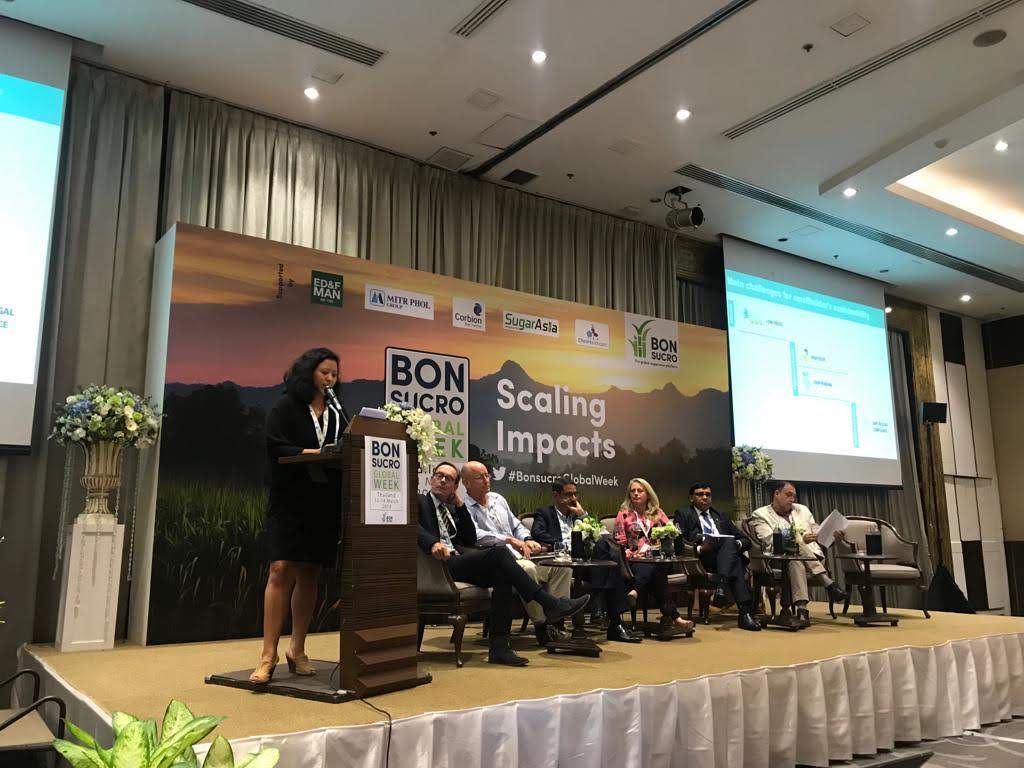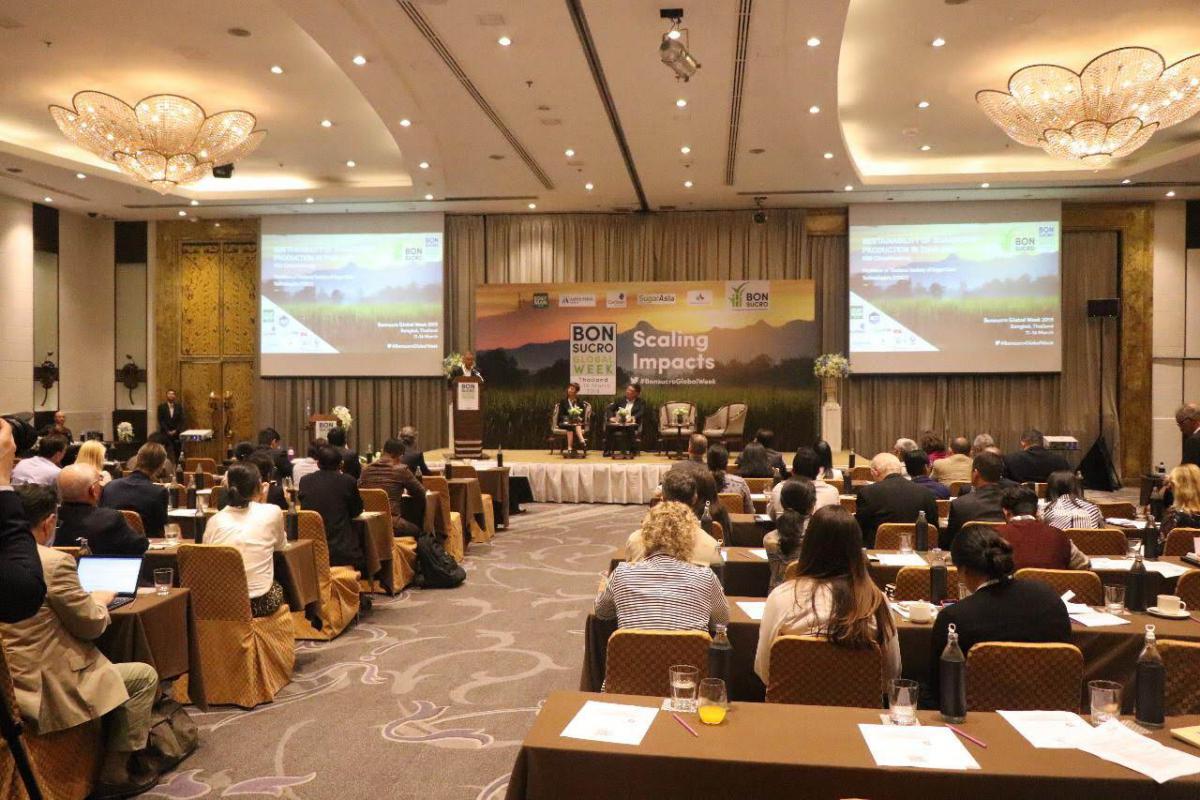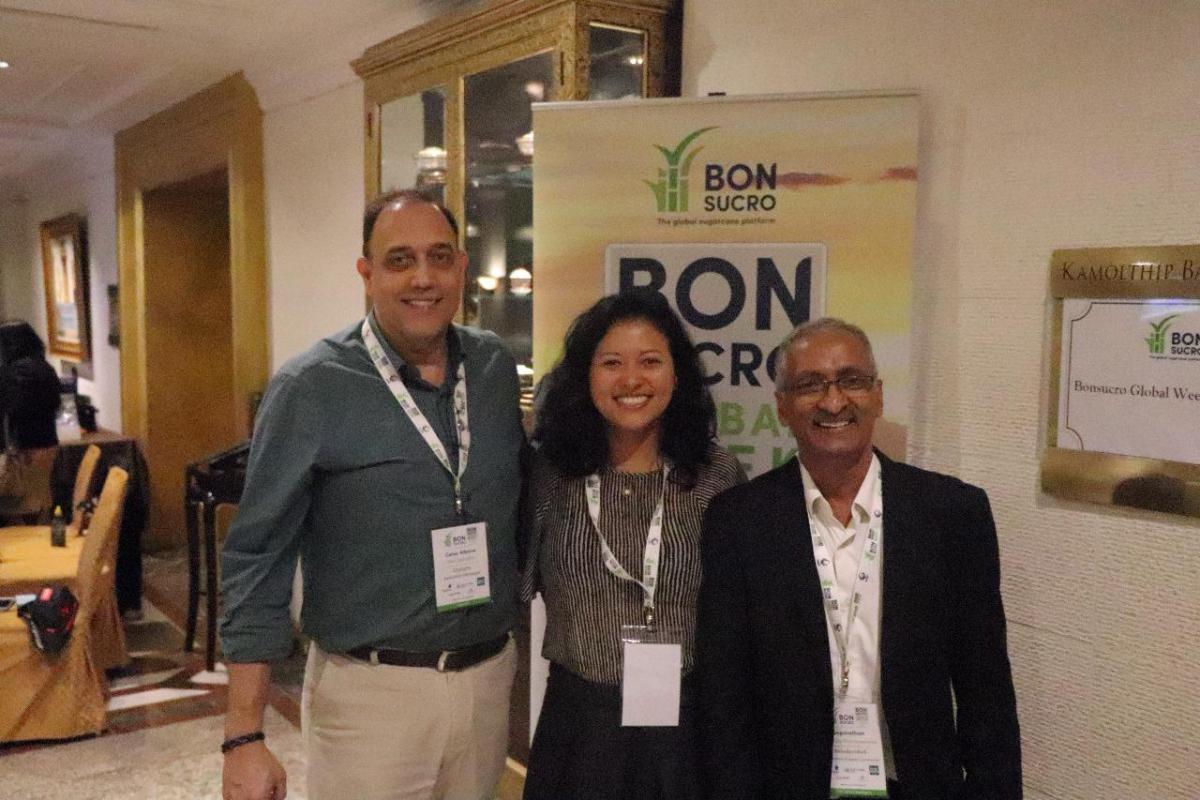
Aline Silva shares findings from successful Solidaridad interventions
Aline Silva, Solidaridad sugarcane programme manager, and Celso Albano, executive manager of partner organization Orplana, participated in the session on how Bonsucro can aid small sugarcane growers to attain sustainability during the event on 12 March. Other participating organizations included PepsiCo, RMI Outgrower Development, Rabobank Group and DCM Shriram.
Sustainability in the Brazilian sugarcane sector is key to mainstreaming sustainable markets globally. Brazil is the main producer of sugarcane in the world with 8.7 million hectares and 603 million tons of sugarcane produced in the last harvest (2017/2018).
In addition, Orplana is one of the biggest farmers’ associations in Brazil with around 11 thousand members.
If Orplana was a country it would rank 6th in the world in terms of volumes produced, and the 3rd in terms of productivity. That is why our partnership with Orplana, that started in 2017, can generate relevant knowledge for other actors. – Aline Silva, Solidaridad
Muda Cana is the joint programme between Solidaridad and Orplana that works both with individual farmers and farmers’ associations in order to improve how they manage their operations and tackle socio-environmental issues, so they become more sustainable.

Industry leaders from around the world participate in the annual Bonsucro Week
The FIRST CHALLENGE is Prices
Smallholders have less leverage when negotiating with mills because of their lower production volumes. Consequently, unprofitable prices at the farm gate end up excluding them from the business. In the last 10 years, Orplana lost around 30% of its market share while the country’s volumes figures remained stable, pointing at the increased land concentration that resulted from small farmers exiting the sector.
What are Solidaridad and Orplana doing to help smallholders?
- First of all, the programme supports farmers in joining sales pools that bargain and sell their products to the mills collectively.
- Second, the programme supports negotiations with mills through organizations that represent sugarcane producers’ interests, such as Consecana in Brazil.
- Third, the goal is to advocate for a fairer methodology in calculating prices.

Pictured left to right: Orplana Executive Manager, Celso Albano; Solidaridad Programme Manager, Aline Silva; Solidaridad International Sugarcane Coordinator, Dr Gopinathan
The SECOND CHALLENGE is COSTS
The challenge of production costs is similar to the price issue: smallholders have less bargaining power when buying inputs because of the lower purchase volumes and end up structurally operating with a net loss.
The combination of low output and high input prices results in production costs per ton that are 20% higher on average than sales revenues for smallholders. – Celso Albano, Orplana
To counter these trends, Solidaridad and Orplana:
- Perform assessments on farmers and then use data intelligence to guide more efficient financial and technical decisions.
- Support farmers to join purchasing pools that buy inputs together at a cheaper price.
The LAST challenge is reaching legal COMPLIANCE
Brazil has strict and demanding environmental and labour laws that are not always easy for smallholders to implement on their farms. For example, the amount of area that farmers need to preserve (from 20% to 80% of the land, depending on the region) contributes to making farming an unprofitable activity. Legal compliance is therefore considered a “barrier” by most of the farmers, especially smallholders.
In a similar way to what can be done to make more efficient decisions in farm management, the Mud Cana programme approaches the compliance issue with a self-assessment methodology developed by Solidaridad in the Farming Solution app. Through the app, farmers answer questions regarding environmental and labour legal compliance and evaluate themselves in each area. The Farming Solution app processes the information and creates an individual action plan to comply with legal requirements.
How can Bonsucro and other stakeholders support smallholders?
Despite the differences between smallholders in Brazil and other regions, the challenges are similar and the solutions involve cooperation among all stakeholders:
- Create mechanisms to share the value of certified products along the chain – back to the farmers.
- Recognize that sustainable production offers benefits, not just in terms of price premiums, but through a broader range of financial and commercial incentives (for example, by prioritizing certified farmers when placing orders, or by providing access to credit).
- Identify and share lessons from its members, and integrate state-of-the-art knowledge and tools that help to improve their efficiency and yields through training linked to certification.
- Build the capacity of local networks to ensure that farmers have the ability and knowledge to reach Bonsucro standards.
- Invest more in reducing the financial costs and simplify the requirements for smallholders to obtain and retain certification.
